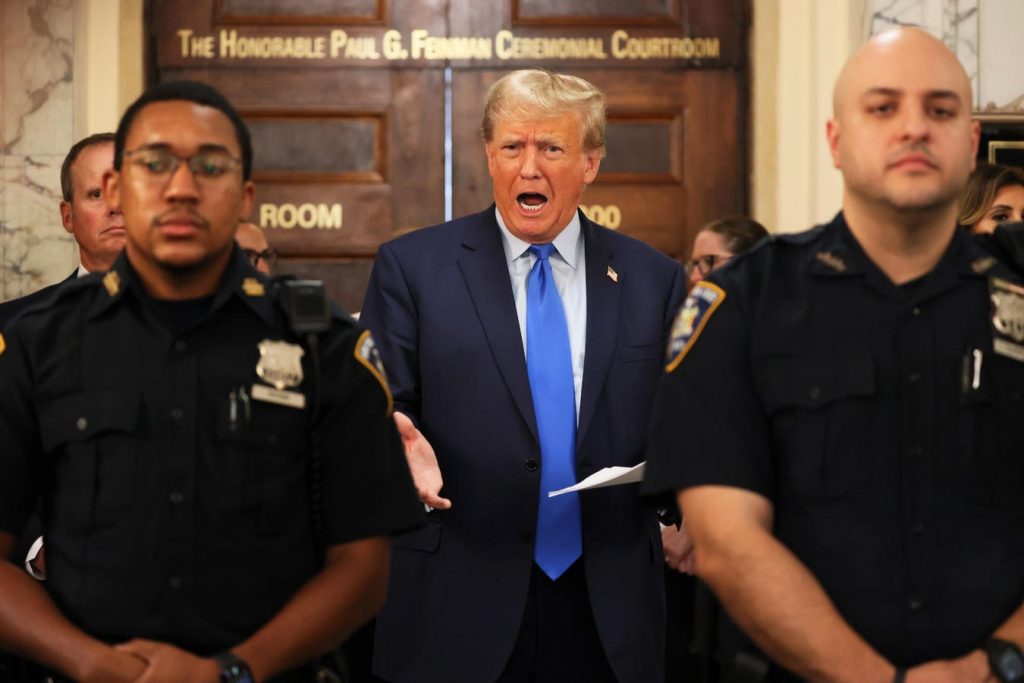A New York state judge overseeing former President Donald Trump’s criminal trial related to “hush money” payments has expanded a gag order against Trump after he repeatedly targeted the judge’s daughter on social media. The gag order, initially imposed in March, prohibits Trump from making public statements that could interfere with the case, and has now been extended to include family members of the judge and District Attorney. Trump faces several restrictions on his speech in ongoing criminal cases, due to his repeated attacks on prosecutors, judges, and other parties involved in the proceedings.
In addition to the gag order, Trump is also subject to pre-trial release conditions that bar him from communicating with known witnesses except through counsel. Protective orders prohibit Trump and other parties in the criminal cases from copying or sharing evidence on social media, delaying the disclosure of certain names in the case until jury selection begins. Trump’s bond agreement in his Georgia election case prevents him from communicating with co-defendants or potential witnesses about the case, and prohibits him from intimidating or obstructing the administration of justice.
Trump’s bond conditions in a federal case related to White House documents at Mar-A-Lago prevent him from discussing the case with witnesses or co-defendants except through counsel. A protective order bars him from sharing any discovery materials in the case, only allowing access under the supervision of his defense counsel. The gag orders and restrictions on Trump’s speech have led to concerns about the fair administration of justice and potential interference with the judicial proceedings in the criminal cases against him.
Trump has strongly opposed the gag orders, claiming they violate his freedom of speech. He has argued that the restrictions on his speech harm his presidential campaign and prevent him from responding to attacks or telling the truth. Despite these objections, the court has upheld the gag orders against Trump, citing concerns about the integrity of the judicial proceedings and the potential for interference. The court has not specified the penalties that could be imposed on Trump if he violates the gag orders or any conditions of his pre-trial release but has indicated that violations could result in fines.
While the gag orders limit Trump’s ability to comment on certain aspects of the cases against him, there are still areas where he is free to express opinions. For example, Trump can criticize the Biden Administration, assert his innocence, or criticize political rivals without violating the gag order. The restrictions on Trump’s speech extend beyond the criminal cases in New York and Georgia, with other judges imposing gag orders in related trials to prevent attacks on court staff. Trump has a history of criticizing prosecutors, judges, and potential witnesses in his legal cases, leading to the imposition of gag orders to maintain the integrity of the proceedings.


